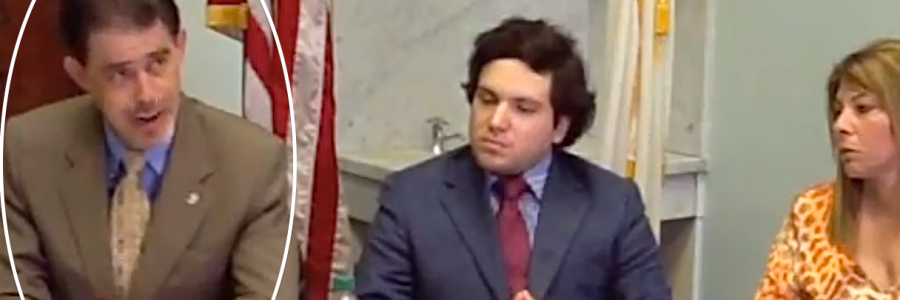by Kali Miller, PhD | Sept.12, 2017 | Posted to HARBR Oct.12, 2017
Mama don’t let your babies grow up to be doctors.
“75% of med students and new doctors are on antidepressants or stimulants (or both)”. The title of Pamela Wible MD‘s article caught my eye. I knew that CNN had reported that 25% of medical students report depression and about 1 in 10 have suicidal thoughts. As a former psychologist who had clients who were physicians and friends who went to medical school, that number sounded low to me. Dr. Wible’s numbers sound much more accurate, perhaps due to enhanced anonymity for her participants. After all, what professional is going to risk their career and livelihood by reporting having “psychiatric problems”. This could not only negatively impact medical students during training, but would then have to be reported to their boards when licensed. It’s interesting as professionals how we are trained to be HIPPA compliant, protecting our clients and patients confidentiality vigorously, while at the same time accepting that our own medical and mental health information is not protected from our boards and even some insurance panels.
The American Academy of Sleep Medicine reports that medical students are one of the most vulnerable groups when it comes to suffering from “poor sleep”. Those unfamiliar with medical school might think it is the rigorous studying and the stress of making life and death decisions that disrupts students sleep and I’m sure they’re not wrong. However, consider that in 2003 The Accreditation Council for Graduate Medical Education (ACGME) developed regulations which restricted “continuous maximum extended duty to 30 hours.” Does your mind boggle? Well thank goodness their recommendation was reduced in 2011 to 16 hours for some (not all!) medical students. In “The Danger Medical Students face when they don’t get enough Sleep” Sierra Kennedy writes that doctors who work more than 16 consecutive hours have “36% more serious medical errors than those whose scheduled work is limited to 16 consecutive hours” and “make 5X as many serious diagnostic errors.” This is certainly good information but really, isn’t the real question how many hours can an individual in a complex high stress occupation work before their cognitive ability significantly declines at all? These numbers don’t tell us what the decline in functioning was prior to the 16 hours. Are you curious what the decline was after 8 hours, or 12 or 15? If I recall correctly, in graduate school we were told that high stress professions such as physicians, police officers etc had a significant decline in the ability to make good decisions, defuse high stress situations and regulate their own emotions after 4-6 hours. And never mind learning.
The lack of sleep and the elusive search to feel sharper, faster, smarter explains the stimulants. And the use of stimulants doesn’t just include stimulant medications, which are controlled substances. Smoking and excessive caffeine intake is also rampant in the medical community. Didn’t you ever wonder why physicians, who of all people should know better, don’t. In my clinical psychology graduate program we were told that we could not even make an accurate diagnosis until our clients were sleeping 8 hour per night on a steady schedule for a month. Prior to that, our goal was primarily to assist our client in creating a healthy sleep routine for their mental as well as physical health. The research was in, sleep deprivation can cause depression, anxiety, aggression and even psychosis. Meanwhile, medical students and many physicians may have gone far beyond the hopes of best practice and are simply trying not to kill anyone in their impaired state.
Since being made privy to these facts over 25 years ago, I became convinced that forcing medical students and physicians to work with lack of, or interrupted sleep is not only unethical but should be illegal. I think of medical school as similar to joining a cult. You feel very honored to be asked to join. You quickly realize those in power control who and what you are exposed to but believe that the reward will be well worth it. You have little or no time for extraneous relationships, including family. To succeed you must strictly adhere to prescribed reading and activities. You are often limited in when and what you can eat and told when and sometimes where you can sleep. As exhaustion mounts you are particularly susceptible to suggestion. You are told your entire future rests on your actions, your absolute perfection, but are set up again and again for failure. Sometimes your failure has lethal heart wrenching results and but you can’t talk about it. In fact, there are a lot of dirty little secrets you aren’t supposed to talk about. When the inevitable error happens you are either shamed and chastised, even cast out, or a superior covers for you. This leaves you feeling pitifully grateful, yet knowing your mutual silence is another cost of being in the cult, or profession, as the case may be.
Medical school graduates hope that once they’re licensed the depression, the medications, the cigarettes and alcohol won’t be needed any more, the memory of mistakes will be blunted by time, and somehow everything is going to be Okay. You have only to look at the low career satisfaction ranking of physicians or the Mayo Clinic study that confirms physicians have the highest suicide rate of any profession to see that all to often, this simply isn’t the case.
It is refreshing to see professionals like Pamela Wible speaking out. If nothing else students can make an informed choice regarding whether they want to pursue a career in medicine. Facts in hand and caught in the spotlight, teaching facilities have an opportunity to make wiser choices about how young physicians are trained. Physicians themselves can begin to speak up about what they have endured and rather then argue that they made it through or “It’s always been done this way” they can speak up for their own, the future of medicine in this country.
Our current model of training physicians serves neither the provider nor the client and it doesn’t take a psychologist to figure that out.
Kali Miller, Ph.D.
Read the article which inspired this one:



